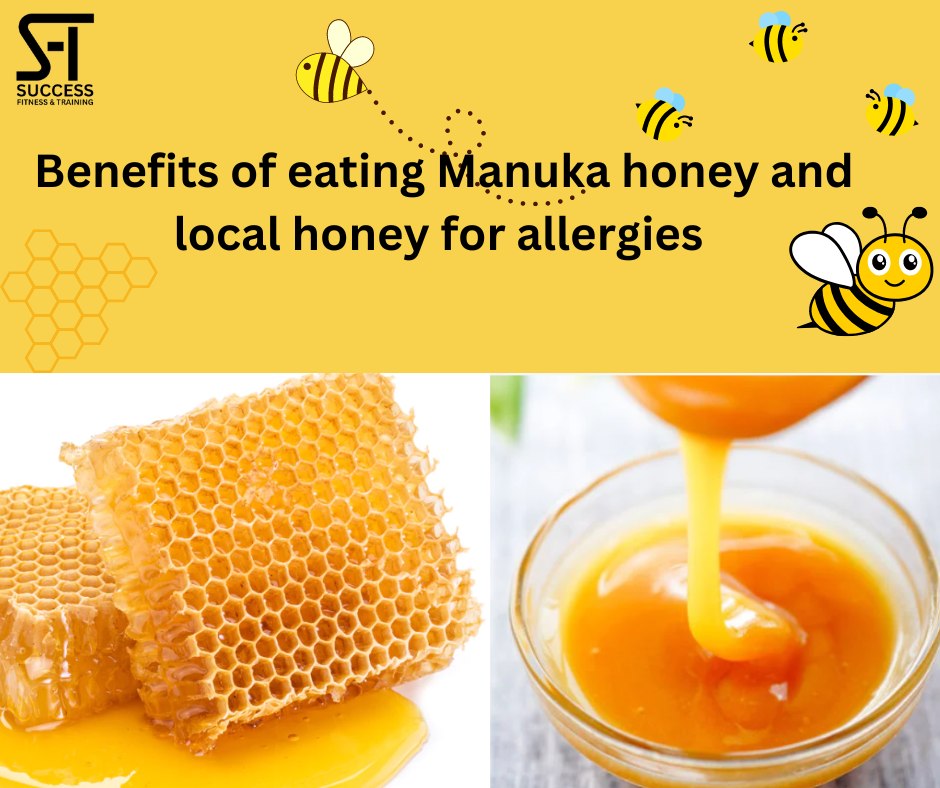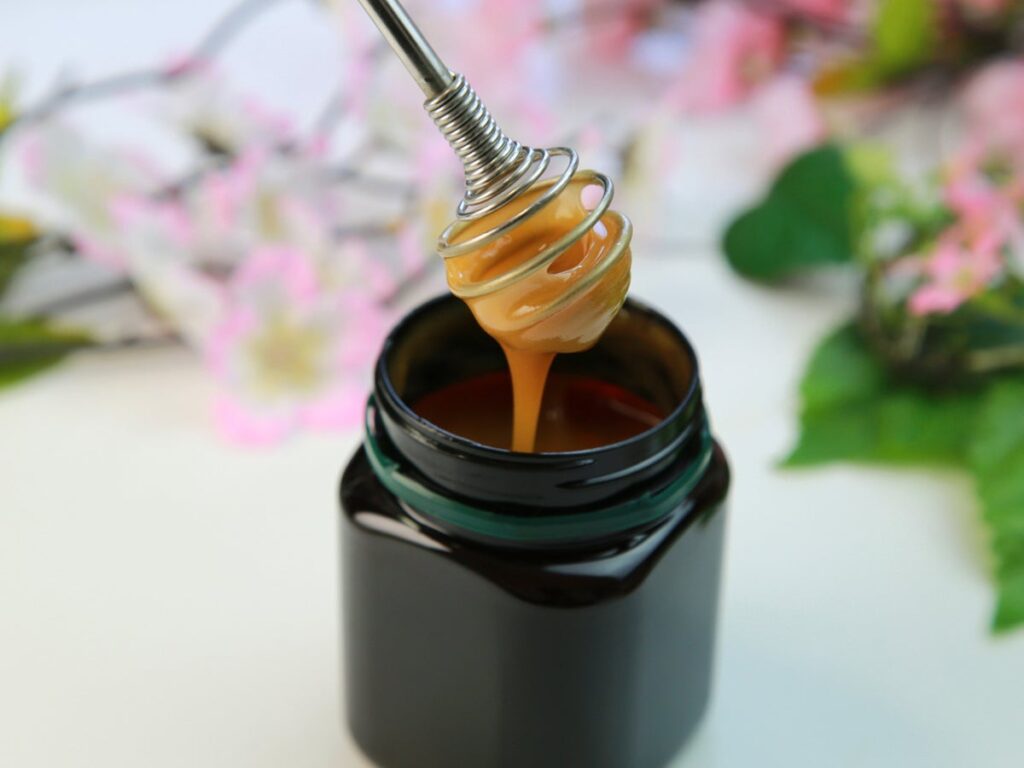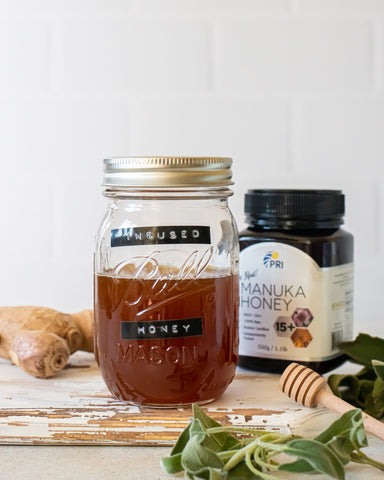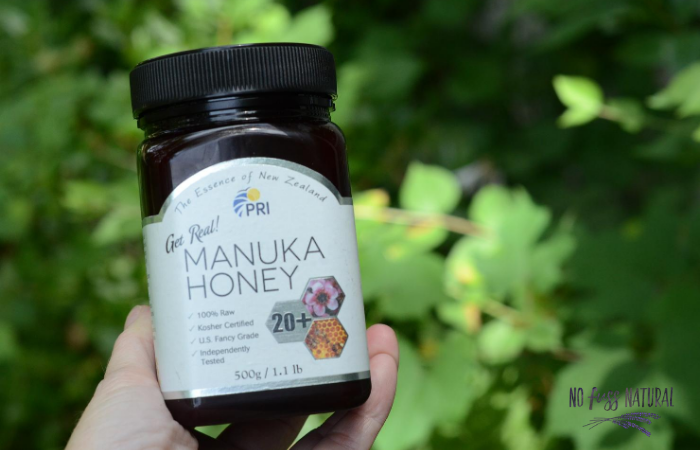
If you’ve ever struggled with allergies, you’ve likely wondered if there’s a natural remedy out there that can bring you relief. Well, look no further than the delicious and sweet solution that is Manuka honey. This golden elixir not only tantalizes your taste buds but has been praised for its potential to ease allergy symptoms. But before you delve into the world of manuka honey, let’s uncover the truth behind the buzz and find out if it really does help with allergies.

What is Manuka Honey?
Definition
Manuka honey is a unique type of honey that is produced in New Zealand from the nectar of the Manuka tree (Leptospermum scoparium). It is renowned for its distinct taste and numerous health benefits. What sets Manuka honey apart from regular honey is its high concentration of methylglyoxal (MGO), a compound that gives it its unique antimicrobial properties.
Source
The Manuka tree is native to New Zealand, and its flowers produce nectar that attracts bees. These bees collect the nectar and transform it into honey, which is then harvested by beekeepers. The production of Manuka honey requires specific conditions, including the presence of the Manuka tree, specific weather patterns, and the absence of other plants that could contaminate the honey with their pollen.
Unique Properties
One of the most remarkable properties of Manuka honey is its high level of antibacterial activity. This is due to its elevated MGO content, which gives Manuka honey powerful antimicrobial properties. In addition to its antimicrobial effects, Manuka honey also possesses anti-inflammatory and antioxidant properties, which further contribute to its health benefits.
Understanding Allergies
Causes of Allergies
Allergies occur when the immune system reacts overly sensitively to certain substances. These substances, known as allergens, can include pollen, dust mites, pet dander, certain foods, and many others. When a person with allergies comes into contact with an allergen, their immune system releases histamine, a chemical that triggers allergy symptoms.
Symptoms of Allergies
Allergy symptoms can vary depending on the type of allergen and the individual’s immune response. Common symptoms include sneezing, itching, watery eyes, nasal congestion, coughing, wheezing, hives, and in severe cases, difficulty breathing. Allergies can significantly impact a person’s quality of life and may require medical treatment to alleviate symptoms.
Different Types of Allergies
There are various types of allergies, including seasonal allergies (hay fever), allergic rhinitis, allergic conjunctivitis, food allergies, insect sting allergies, and drug allergies. Each type has its specific set of triggers and symptoms, but all involve an abnormal immune response to an otherwise harmless substance.
Can Manuka Honey Help with Allergies?
Claims and Popular Beliefs
There are claims and popular beliefs suggesting that Manuka honey may help alleviate allergy symptoms and provide relief. Some people believe that consuming Manuka honey can desensitize the immune system to allergens, reducing the severity of allergic reactions. Others claim that the anti-inflammatory properties of Manuka honey can help soothe irritated nasal passages and respiratory tissues.
Scientific Research and Evidence
While there is anecdotal evidence supporting the use of Manuka honey for allergies, scientific research is still limited in this area. A few studies have explored the potential benefits of Manuka honey for allergic rhinitis and asthma, but more research is needed to establish its efficacy. Although promising, it is essential to rely on scientific evidence and consult with healthcare professionals before considering Manuka honey as a treatment for allergies.
Chemical Composition of Manuka Honey
Major Components
Manuka honey’s chemical composition includes carbohydrates (such as glucose and fructose), proteins, amino acids, vitamins, minerals, enzymes, and organic acids. However, its unique property lies in the presence of methylglyoxal (MGO), which is responsible for the high potency of Manuka honey in terms of antimicrobial activity.
Antibacterial Properties
The antibacterial activity of Manuka honey is due to the presence of MGO, which exhibits broad-spectrum antimicrobial effects against various bacteria, including antibiotic-resistant strains like Methicillin-resistant Staphylococcus aureus (MRSA). This property makes Manuka honey a potential natural alternative for addressing bacterial infections and preventing their recurrence.
Anti-inflammatory Properties
Inflammation is a common element in allergic reactions, asthma, and other respiratory conditions. Manuka honey possesses anti-inflammatory properties, which may help alleviate inflammation associated with allergies. Its ability to reduce inflammation is attributed to the presence of compounds like flavonoids and phenolic acids, which exert anti-inflammatory effects in the body.

Potential Mechanisms of Action
Reducing Histamine Release
Histamine is a chemical released by the immune system in response to an allergen. It causes the characteristic allergy symptoms. Some studies suggest that Manuka honey might help reduce the release of histamine, potentially leading to a reduction in allergy symptoms.
Strengthening Immune System
Manuka honey’s antimicrobial and immunomodulatory properties may help strengthen the immune system, improving its response to allergens. By supporting immune function, Manuka honey could potentially aid in reducing the severity of allergic reactions.
Soothing Irritation
The anti-inflammatory properties of Manuka honey can help soothe irritated nasal passages and respiratory tissues, providing relief from allergy symptoms such as nasal congestion and irritation.
Supporting Digestive Health
The consumption of Manuka honey may also have benefits for digestive health. A healthy gut is essential for overall well-being and may play a role in modulating the immune system’s response to allergens. Manuka honey’s antibacterial and anti-inflammatory properties may contribute to maintaining a healthy gut microbiome.
Different Forms of Usage
Consuming Manuka Honey
One common way to utilize Manuka honey is by consuming it directly. It can be eaten alone, added to food or drinks, or used as a natural sweetener. It is important to note that Manuka honey should not be given to infants under one year old due to the risk of potential botulism spores.
Topical Applications
Manuka honey can also be used topically to address skin conditions associated with allergies, such as rashes or hives. Applying a thin layer of Manuka honey to the affected area may help soothe inflammation and promote healing.
Nasal Irrigation
Nasal irrigation involves rinsing the nasal passages with a saline solution to remove allergens and irritants. Some people add a small amount of Manuka honey to the saline solution used for nasal irrigation, believing that it can enhance the effectiveness of the rinse.

Potential Benefits of Manuka Honey for Allergies
Alleviating Symptoms
Although scientific evidence is limited, some individuals report that consuming Manuka honey helps alleviate allergy symptoms such as sneezing, congestion, and itching. The anti-inflammatory properties of Manuka honey may play a role in reducing the intensity of these symptoms.
Reducing Allergic Reactions
Manuka honey’s potential ability to reduce histamine release and strengthen the immune system suggests that it may help minimize the severity of allergic reactions. However, further research is needed for stronger conclusions.
Boosting Immune System
Supporting the immune system is crucial in managing allergies, as a stronger immune response can help minimize reactions to allergens. The immunomodulatory properties of Manuka honey may contribute to boosting the immune system’s ability to handle allergens.
Considerations and Precautions
Choosing High-Quality Manuka Honey
When considering Manuka honey as a potential remedy for allergies, it is crucial to choose a high-quality, genuine product. Look for a reputable brand that provides a Unique Manuka Factor (UMF) rating on their honey, indicating the level of MGO and other beneficial compounds.
Possible Side Effects
While Manuka honey is generally safe for consumption, some individuals may experience allergic reactions or gastrointestinal discomfort. It is always advisable to start with small quantities to assess tolerance and discontinue use if any adverse effects occur.
Dosage and Usage Recommendations
There is no specific dosage recommendation for Manuka honey when used for allergies. It is best to follow the instructions provided by the manufacturer or consult with a healthcare professional for personalized advice regarding dosage and frequency.

Other Remedies for Allergies
Traditional Antihistamines
Traditional antihistamines are commonly prescribed or available over-the-counter to alleviate allergy symptoms. These medications block the effects of histamine in the body and provide relief from symptoms such as sneezing, itching, and runny nose. They are available in various forms, including oral tablets, nasal sprays, and eye drops.
Natural Alternatives
In addition to Manuka honey, several natural remedies are believed to support allergy relief. These include herbal supplements such as butterbur, quercetin, and stinging nettle, as well as saline nasal rinses and steam inhalation.
Immunotherapy
For individuals with severe allergies, immunotherapy may be recommended. This treatment involves exposing the body to small amounts of allergens over time, gradually desensitizing the immune system and reducing allergic reactions. Immunotherapy can be administered through allergy shots or sublingual tablets.
Consulting a Healthcare Professional
Medical Advice for Allergies
It is crucial to consult with a healthcare professional if you suspect you have allergies or if your symptoms are severe and affecting your quality of life. They can provide an accurate diagnosis, recommend appropriate treatments, and help you manage your allergies effectively.
Manuka Honey as Complementary Treatment
If you decide to incorporate Manuka honey into your allergy management routine, it is vital to inform your healthcare professional. They can offer guidance and ensure that it does not interact with any medications you may be taking. Manuka honey should be seen as a complementary treatment, rather than a replacement for traditional medical advice.
Avoiding Self-Diagnosis and Self-Treatment
While Manuka honey may offer potential benefits for allergies, it is crucial to avoid self-diagnosis and self-treatment. Allergies can range in severity, and it is important to have a proper assessment by a healthcare professional to determine the most appropriate course of action.
